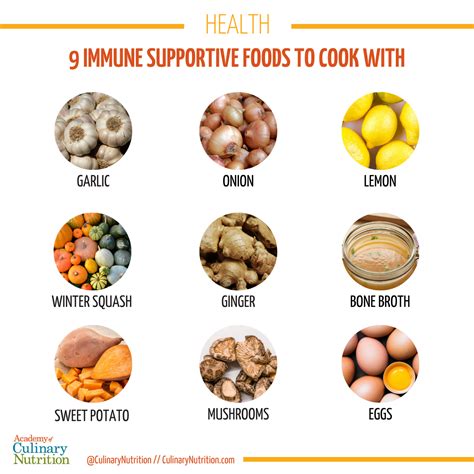Is Fat Loss Harder for Women?
Discover tailored strategies and top supplements to overcome fat loss challenges unique to women. Start your journey to a healthier you today!More

When it comes to fat loss, the journey can feel like an uphill battle for many. However, for women, this journey often comes with unique challenges that men may not face. Research and anecdotal evidence alike suggest that shedding unwanted pounds can be significantly more difficult for women due to a combination of biological, behavioral, and societal factors.
Understanding these differences is crucial, especially for fitness enthusiasts, bodybuilders, and strength builders who aim for peak physical condition. By acknowledging the unique obstacles women face, we can better tailor our approaches to diet, exercise, and supplementation, ultimately leading to more effective and sustainable fat loss strategies.
This article will examine the various factors that contribute to the differing fat loss experiences between men and women including the role of hormones, muscle mass, metabolic rates, and psychological influences, to provide a comprehensive overview that will help you understand why fat loss can be harder for women and how to address these challenges effectively.
Biological Differences
Understanding the biological differences between men and women is essential when examining why fat loss might be harder for women. Several key factors, including hormonal influences, muscle mass differences, and fat distribution patterns, play a significant role in how each gender processes and loses fat.
By recognizing and understanding these biological differences you can better tailor your approach to fat loss. This knowledge allows for more personalized and effective strategies that consider the unique challenges women face, ultimately leading to more successful and sustainable results.
Body Mass Index
According to the CDC, a healthy Body Mass Index (BMI) for women is typically considered to be between 18.5 and 24.9.
Here’s a quick breakdown:
Metabolic Rate and Energy Expenditure
When it comes to fat loss, metabolic rate and energy expenditure play pivotal roles. Differences between men and women in these areas significantly impact the ease or difficulty of losing fat. This section will delve into the nuances of basal metabolic rate (BMR), total daily energy expenditure (TDEE), and the effects of diet and exercise on fat loss.
Understanding the interplay between metabolic rate, energy expenditure, and the specific needs of women and men allows for more effective fat loss strategies. Tailoring diet and exercise plans to these metabolic differences can help women overcome some of the challenges they face in achieving their fat loss goals, leading to more sustainable and successful outcomes.
Behavioral and Psychological Factors
Fat loss is not solely a physical journey; behavioral and psychological factors play a critical role in determining success. Men and women often approach diet and exercise differently due to various behavioral patterns and psychological influences. This section will explore how dieting practices, motivation, discipline, and social and cultural influences affect fat loss efforts.
- - Women are more likely to engage in restrictive dieting, which can lead to cycles of yo-yo dieting and metabolic adaptation. These patterns can make sustained fat loss more challenging.
- -Men, on the other hand, often focus on muscle gain and may adopt higher-protein diets, which support both muscle maintenance and fat loss.
- - Women may face unique motivational challenges, including balancing multiple roles such as career, family, and social obligations, which can impact their ability to stay disciplined with their diet and exercise routines.
- - Men may experience different types of motivation, often driven by performance and competition.
- - Women are often subjected to societal pressures to achieve certain body standards, which can lead to unhealthy dieting behaviors and body image issues.
- - Men, while also facing societal pressures, often experience these in the context of strength and muscle mass, which can influence their approach to fat loss and muscle gain.
Understanding the behavioral and psychological factors that influence fat loss can provide valuable insights into the challenges faced by both men and women. By addressing these factors, fitness enthusiasts, bodybuilders, and strength builders can develop more effective and sustainable fat loss strategies that account for individual differences in behavior and psychology.
Additional Reading: DO WOMEN HAVE MORE FAT THAN MEN?
Challenges Specific to Women
Women face several unique challenges that can complicate their fat loss efforts. These challenges are often linked to physiological changes that occur throughout different life stages. This section will explore how the menstrual cycle, pregnancy and postpartum, and menopause affect women’s ability to lose fat.
By recognizing and addressing these specific challenges, women can develop more realistic and effective fat loss strategies. Understanding the impact of the menstrual cycle, pregnancy, and menopause on fat loss helps create tailored approaches that align with the body’s natural rhythms and changes, ultimately supporting long-term success.
Strategies for Effective Fat Loss
While women face unique challenges in their fat loss journeys, there are several strategies that can help them achieve their goals effectively. By adopting tailored nutrition plans, incorporating strength training, and maintaining consistency and patience, women can overcome obstacles and achieve sustainable fat loss.
1. Tailored Nutrition Plans
A personalized nutrition plan is crucial for effective fat loss. Women's nutritional needs vary based on factors like hormonal fluctuations, activity levels, and life stages. It's essential to focus on a balanced diet rich in whole foods, including lean proteins, healthy fats, and complex carbohydrates.
Here are some key considerations for a tailored nutrition plan:
2. Strength Training
Strength training is a powerful tool for fat loss, particularly for women. Building muscle mass increases resting metabolic rate (RMR), helping the body burn more calories at rest. Strength training also improves body composition, leading to a leaner, more toned appearance.
Effective strength training strategies include:
3. Consistency and Patience
Achieving fat loss is a long-term endeavor that requires consistency and patience. It's important to set realistic goals and understand that progress may be slow, but sustainable changes yield the best results.
Here are some tips to maintain consistency and patience:
By implementing these strategies, women can navigate the challenges of fat loss more effectively. Tailored nutrition plans, strength training, and a commitment to consistency and patience will support sustainable and successful fat loss, helping women achieve their fitness goals and maintain them over time.
Role of Supplements
Supplements can play a supportive role in a fat loss journey, especially when combined with a balanced diet and regular exercise. For women, certain supplements can address specific challenges such as hormonal balance, metabolism enhancement, and appetite control. This section will discuss how these supplements can aid in effective fat loss.
1. Support for Hormonal Balance
Hormonal fluctuations can significantly impact fat loss efforts.
Supplements that support hormonal balance can help mitigate some of these challenges include:
2. Enhancing Metabolism
3. Appetite Control
Managing hunger and cravings is crucial for maintaining a calorie deficit necessary for fat loss.
Supplements that help control appetite can make it easier to stick to a diet plan:
4. Nutrient Support
In addition to targeting specific fat loss mechanisms, general nutrient support is essential for overall health and optimal body function during a fat loss program:
While supplements can aid in fat loss, they should not replace a balanced diet and consistent exercise routine. They are most effective when used as part of a comprehensive approach to health and fitness.
By choosing the right supplements to support hormonal balance, enhance metabolism, control appetite, and provide nutrient support, women can better navigate the challenges of fat loss and achieve their fitness goals. Always consult a healthcare professional before starting any supplement regimen to ensure safety and efficacy.
Conclusion
Achieving fat loss is a multifaceted journey that involves understanding and addressing various biological, metabolic, behavioral, and psychological factors. Women, in particular, face unique challenges due to hormonal fluctuations, life stages, and societal pressures. However, by adopting tailored strategies and leveraging the right tools, women can effectively overcome these obstacles and achieve their fat loss goals.
Here, we have explored the significant differences between men and women in fat loss, highlighting how hormones, muscle mass, and fat distribution play crucial roles. We've discussed the importance of understanding metabolic rate and energy expenditure, recognizing the impact of behavioral and psychological factors, and addressing challenges specific to women, such as those related to the menstrual cycle, pregnancy, postpartum, and menopause.
Effective fat loss strategies for women include creating personalized nutrition plans, incorporating strength training, and maintaining consistency and patience. Supplements can also play a supportive role by addressing hormonal balance, enhancing metabolism, controlling appetite, and providing essential nutrients.
It's important to remember that fat loss is not a one-size-fits-all endeavor; it requires a comprehensive and individualized approach.
Ultimately, the journey to fat loss is about more than just losing weight; it's about achieving a healthier, stronger, and more balanced body. By understanding the complexities involved and staying committed to the process, women can achieve sustainable and successful fat loss, empowering them to reach their fitness goals and maintain their progress long-term.
Explore the range of supplements and resources available on the STEEL website to support your fat loss journey and enhance your overall health and well-being. Stay motivated, stay informed, and remember that every step forward is a step towards a healthier you.
Additional Reading: FAT BURNERS 101: HOW DO FAT BURNERS WORK FOR WEIGHT LOSS?

 mainadmin
mainadmin 










